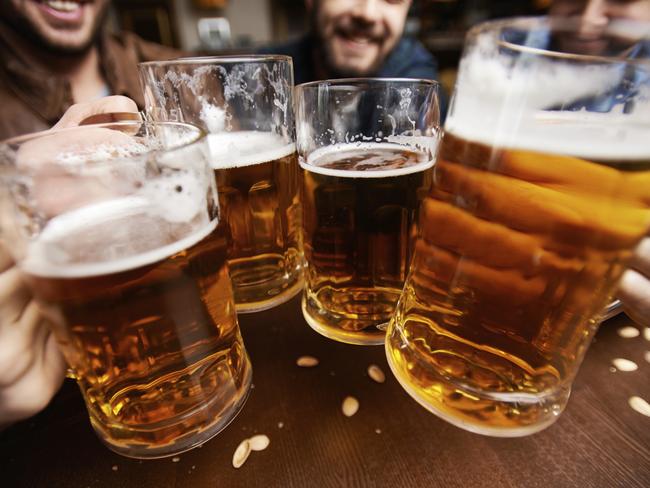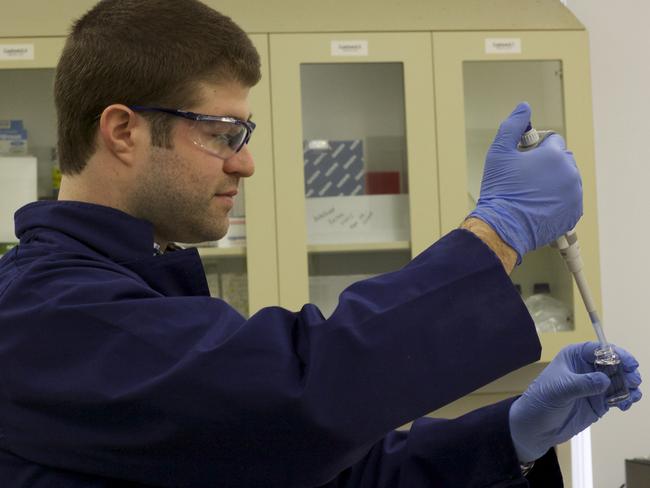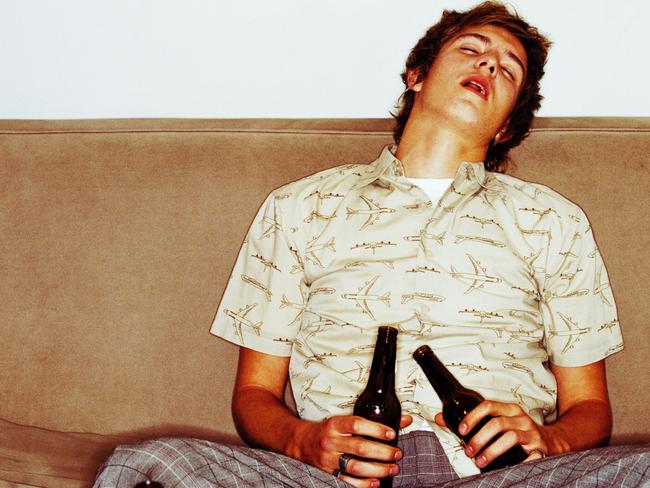Love hormone stops drunkenness, could lead to sobriety pill, study finds
THE best cure for drunkenness is time, but a new Aussie study shows there is another solution — and it could have wide-ranging implications for our problems with alcohol.
AS MUCH as we wish there was another answer, the best cure for drunkenness is time. But a new Australian study shows that there could be another solution — and it could have wide-ranging implications for our nation’s problems with alcohol.
Research led by the University of Sydney has found that the “love hormone” oxytocin, which plays a key role in human bonding, has a remarkable influence on the effects of alcohol.
Scientists have found that infusing oxytocin into the brains of rats that were also given alcohol actually sobered up the animals.
The hormone blocked alcohol from reaching the parts of the brain in which alcohol usually inhibited co-ordination.
Researcher Michael Bowen, of the School of Psychology, said the breakthrough came when scientists observed the intoxicated rats behaving without the usual lack of co-ordination.
“It had a really striking effect. It was one of those ‘wow’ moments … You couldn’t tell that they were drunk,” Dr Bowen told news.com.au.
The sobering-up effect of oxytocin has yet to be shown in humans but, if the findings are able to be replicated, it could lead to ground-breaking advances in the world’s battle against alcoholism.

“The immediate implication is we would be able to prevent serious levels of intoxication,” Dr Bowen said.
“We would be able to prevent intoxication in alcoholics and also reduce the likelihood they would be injured due to that.
“It makes the idea of a sobriety pill a possibility rather than a pure fantasy.”.
Dr Bowen said the challenge now was to translate the findings to humans.
“The first step will be to ensure we have a method of drug delivery for humans that allows sufficient amounts of oxytocin to reach the brain. If we can do that, we suspect that oxytocin could also leave speech and cognition much less impaired after relatively high levels of alcohol consumption,” he said.

But the hormone is not a silver bullet. It won’t, for example, stop you from being arrested for drink-driving.
“While oxytocin might reduce your level of intoxication, it won’t actually change your blood alcohol level,” Dr Bowen said. “This is because the oxytocin is preventing the alcohol from accessing the sites in the brain that make you intoxicated, it is not causing the alcohol to leave your system any faster.”
Some people might worry a drug that decreases drunkenness could encourage people to drink more. But separate experiments conducted by the researchers and other groups showed that taking oxytocin actually reduced alcohol consumption and cravings.

Use of the hormone also reduced the addictive qualities of alcohol both in the short and long term.
“That’s quite exciting because there are treatment options available to get them off alcohol for a month, three months or six months, but we need new treatment options that will help people break through to achieve long-lasting sobriety,” Dr Bowen said.
The study, which was a collaboration between the University of Sydney and the University of Regensburg, Germany, was published today in the Proceedings of the National Academy of Sciences.



